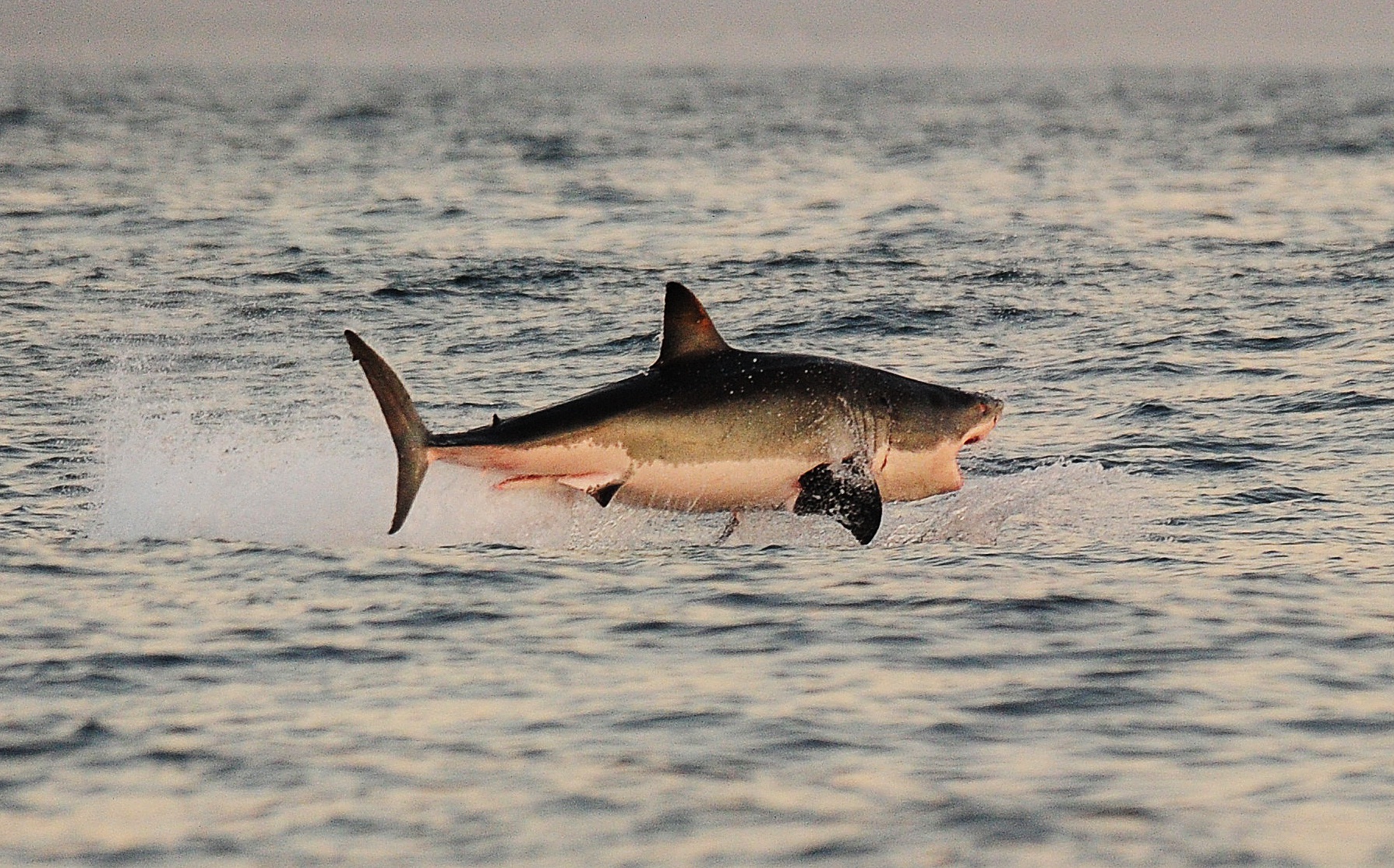Baby sharks are eating a surprising number of land-based birds

A free daily email with the biggest news stories of the day – and the best features from TheWeek.com
You are now subscribed
Your newsletter sign-up was successful
Baby sharks have been up to some things that weren't covered in the song.
New research published in the journal Ecology on Tuesday has found a surprising factor in the diets of newborn tiger sharks. Small songbirds, like the sparrows you might see in your backyard, have somehow ended up far enough from home to become prey to the marine predators.
Scientists performed what's called a "gastric lavage," a harmless procedure that flushed out the contents of the stomach for testing, on over 100 juvenile tiger sharks. Out of 105 specimens studied, 41 of them had partially digested birds. All of the bird remains came from North American land birds, National Geographic reported — a strange find, given that most of the sharks were tested far from shore in the Gulf of Mexico.
The Week
Escape your echo chamber. Get the facts behind the news, plus analysis from multiple perspectives.

Sign up for The Week's Free Newsletters
From our morning news briefing to a weekly Good News Newsletter, get the best of The Week delivered directly to your inbox.
From our morning news briefing to a weekly Good News Newsletter, get the best of The Week delivered directly to your inbox.
The study concluded that the most likely scenario is that these birds had been caught in autumnal storms during their annual migration; this would explain why most of the birds seemed to be eaten during the fall. As for why it was mostly baby sharks eating these birds, it's possible that mother tiger sharks have taken notice of the abundance of easy prey, and specifically give birth in the area so that "the young can capitalize on the seasonal songbird scavenging opportunities," National Geographic explained.
Further research will be required to determine the exact link between tiger sharks and terrestrial songbirds, but this discovery just goes to show that nature can interact in weird, unexpected ways. Read more at National Geographic.
A free daily email with the biggest news stories of the day – and the best features from TheWeek.com
Shivani is the editorial assistant at TheWeek.com and has previously written for StreetEasy and Mic.com. A graduate of the physics and journalism departments at NYU, Shivani currently lives in Brooklyn and spends free time cooking, watching TV, and taking too many selfies.
-
 The ‘ravenous’ demand for Cornish minerals
The ‘ravenous’ demand for Cornish mineralsUnder the Radar Growing need for critical minerals to power tech has intensified ‘appetite’ for lithium, which could be a ‘huge boon’ for local economy
-
 Why are election experts taking Trump’s midterm threats seriously?
Why are election experts taking Trump’s midterm threats seriously?IN THE SPOTLIGHT As the president muses about polling place deployments and a centralized electoral system aimed at one-party control, lawmakers are taking this administration at its word
-
 ‘Restaurateurs have become millionaires’
‘Restaurateurs have become millionaires’Instant Opinion Opinion, comment and editorials of the day
-
 Nobody seems surprised Wagner's Prigozhin died under suspicious circumstances
Nobody seems surprised Wagner's Prigozhin died under suspicious circumstancesSpeed Read
-
 Western mountain climbers allegedly left Pakistani porter to die on K2
Western mountain climbers allegedly left Pakistani porter to die on K2Speed Read
-
 'Circular saw blades' divide controversial Rio Grande buoys installed by Texas governor
'Circular saw blades' divide controversial Rio Grande buoys installed by Texas governorSpeed Read
-
 Los Angeles city workers stage 1-day walkout over labor conditions
Los Angeles city workers stage 1-day walkout over labor conditionsSpeed Read
-
 Mega Millions jackpot climbs to an estimated $1.55 billion
Mega Millions jackpot climbs to an estimated $1.55 billionSpeed Read
-
 Bangladesh dealing with worst dengue fever outbreak on record
Bangladesh dealing with worst dengue fever outbreak on recordSpeed Read
-
 Glacial outburst flooding in Juneau destroys homes
Glacial outburst flooding in Juneau destroys homesSpeed Read
-
 Scotland seeking 'monster hunters' to search for fabled Loch Ness creature
Scotland seeking 'monster hunters' to search for fabled Loch Ness creatureSpeed Read